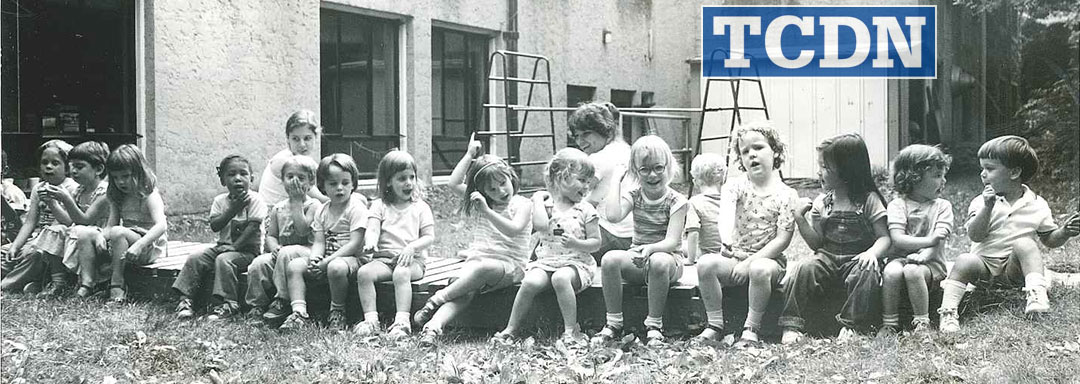Our History
TCDN originated from the minds of a small group of women who gathered on the grounds of Swarthmore College to discuss societal constraints and the limitations of women’s roles in 1971. As a result of this discussion, Trinity Cooperative Day Nursery opened in September, 1972. a home was found in the basement of the Trinity Episcopal Church, where a nursery school was already functioning.
Unlike other centers of its day, TCDN offered care to children ages one to six, from 8:00am to 6:00 pm, with a variety of enrollment options that met the needs of working families. Through the cooperative approach, parents chose from a list of volunteer jobs, contributing six hours a year in cooperative help or paying $10.00. The model of family grouping was established in 1975 and was immediately popular. Programming for school age children was initiated in 1978.
During the 1980’s and 1990’s, TCDN experienced tremendous growth as the need for after school care for school age children expanded. In 1982, TCDN began to rent space from the Wallingford-Swarthmore School District and opened the first satellite program for 1st-5th grade children, named the Swarthmore After School Club (SASC). Expansion continued as TCDN received state grant money which supported the opening of the Nether Providence After School Club (NPASC), the Older After School Club for 4th-6th grade children (OASC), the school-age summer recreation program (The Summer Club), and the Wallingford After School Club (WASC). In addition, an Infant Toddler program was developed in 1995. During these years, the preschool program achieved NAEYC Accreditation and the Leroy Stuppy Memorial Fun Run was established to support the TCDN Scholarship Fund. By the end of the 20th Century, TCDN had 7 programs located at 5 sites and served approximately 250 families.
During the first decade of the 21st Century, changes and successes continued. Focus shifted to increasing standards of program quality, participating in Pennsylvania Keystone STARS, a system to ensure continuous quality improvement in preschool and school age programs. All out-of-school time programs worked to increase quality ratings in the STARS system and the SASC and WASC also became nationally accredited through the Council on Accreditation.
Now in its fifth decade, TCDN is financially healthy and more committed than ever to its vision of setting a standard of excellence in the community.
